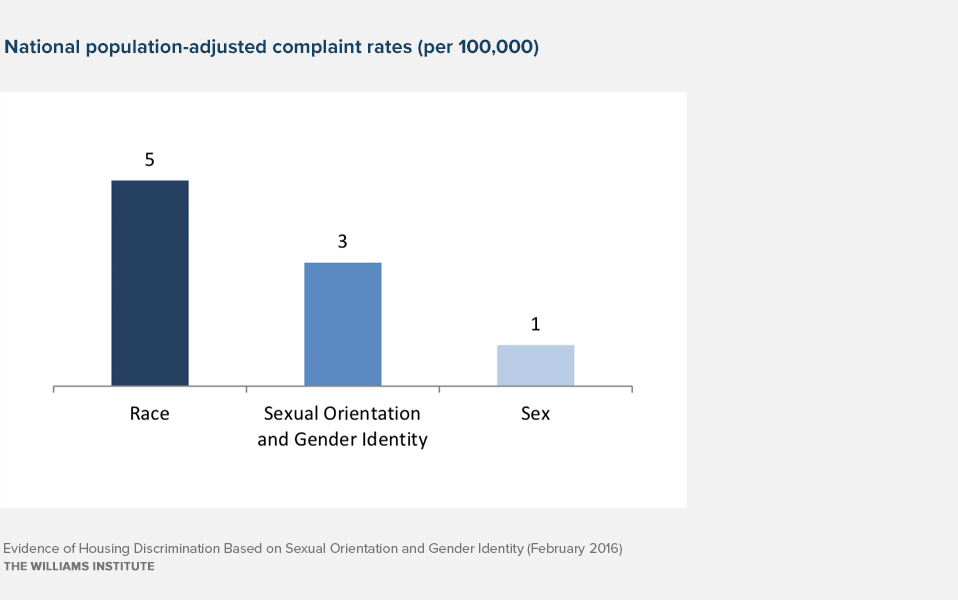Executive Summary
As of February 2016, twenty-two states and the District of Columbia expressly prohibited housing discrimination on the basis of sexual orientation. Nineteen of those states and the District of Columbia also expressly prohibited discrimination in housing on the basis of gender identity. This report measures how frequently these laws are used by LGBT people, compared to how frequently race non-discrimination laws are used by people of color, and sex non-discrimination laws are used by women.
An aggregation of all available state-level data shows that sexual orientation and gender identity housing non-discrimination laws are used by LGBT people at a similar rate to the use of race non-discrimination laws by people of color and the use of sex non-discrimination laws by women. Nationally, on average, approximately 3 complaints of sexual orientation and gender identity discrimination in housing are filed for every 100,000 LGBT adults each year, compared to approximately 5 complaints of race discrimination filed for every 100,000 adults of color, and 1 complaint of sex discrimination filed for every 100,000 women.
The findings refute the argument that discrimination against LGBT people does not occur often enough to establish a need for protective laws. Additionally, even with similar filing rates, sexual orientation and gender identity complaints will not overwhelm government agencies because the raw number of such complaints filed is low. The annual average number of sexual orientation and gender identity complaints filed nationally, across all 18 states that provided data, was 136 complaints.
Download the full report
